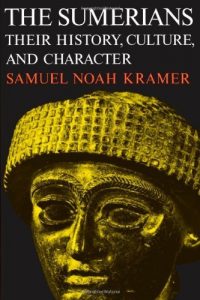The Sumerians, the pragmatic and gifted people who preceded the Semites in the land first known as Sumer and later as Babylonia, created what was probably the first high civilization in the history of man, spanning the fifth to the second millenniums B.C. This book is an unparalleled compendium of what is known about them.
Professor Kramer communicates his enthusiasm for his subject as he outlines the history of the Sumerian civilization and describes their cities, religion, literature, education, scientific achievements, social structure, and psychology. Finally, he considers the legacy of Sumer to the ancient and modern world.
"There are few scholars in the world qualified to write such a book, and certainly Kramer is one of them. . . . One of the most valuable features of this book is the quantity of texts and fragments which are published for the first time in a form available to the general reader. For the layman the book provides a readable and up-to-date introduction to a most fascinating culture. For the specialist it presents a synthesis with which he may not agree but from which he will nonetheless derive stimulation."—American Journal of Archaeology
"An uncontested authority on the civilization of Sumer, Professor Kramer writes with grace and urbanity."—Library Journal
Professor Kramer communicates his enthusiasm for his subject as he outlines the history of the Sumerian civilization and describes their cities, religion, literature, education, scientific achievements, social structure, and psychology. Finally, he considers the legacy of Sumer to the ancient and modern world.
"There are few scholars in the world qualified to write such a book, and certainly Kramer is one of them. . . . One of the most valuable features of this book is the quantity of texts and fragments which are published for the first time in a form available to the general reader. For the layman the book provides a readable and up-to-date introduction to a most fascinating culture. For the specialist it presents a synthesis with which he may not agree but from which he will nonetheless derive stimulation."—American Journal of Archaeology
"An uncontested authority on the civilization of Sumer, Professor Kramer writes with grace and urbanity."—Library Journal








